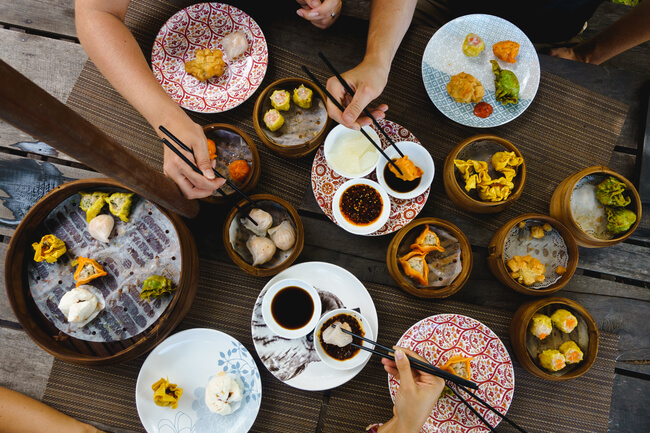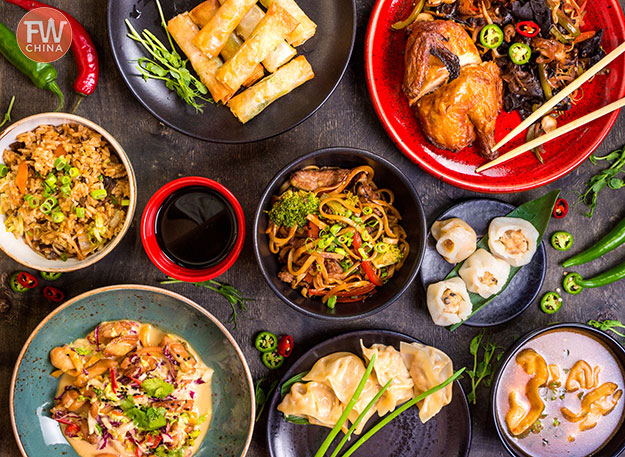20 Good Suggestions To Must-Try Foods in China
Wiki Article
Top 10 Tips On How To Avoid copyright Items When Shopping In China
1. Watches, designer bags electronic gadgets and designer clothing are among the most frequently counterfeited items. Be extra cautious when purchasing these items.Pro: Helps you identify fake products.Con: Insufficient knowledge about authentic products can result in suspicion.
2. Research Authentic Product DetailsBe aware of the logo of the brand fabric, stitching, and packaging before shopping.This app can help you distinguish between fakes and genuine products.Cons: It may be slow-going, especially if you are unfamiliar with the product.
3. Trusted StoresTip: Stick to the official brand stores or malls, like Beijing's China World Mall (or Shanghai's Plaza 66) for high-value items.Pro: Assures authenticity of the product and includes receipts and warranties.Contra: Some items may be significantly more expensive than in street markets or small shops.
4. Check labels and tagsBe sure to look for any typos, irregular fonts, or poor quality materials in packaging and tags.Pro: A quick and simple way to identify fakes made with poor quality.Con: High-quality counterfeits often mimic authentic details extremely closely, which makes detection more difficult.
5. Beware of "too Good to Be True Price"Tips for avoiding prices that are way too low on luxury items can be a sign of a scam. The most expensive luxury items are not often sold below the retail price.Pro: Can help you to avoid obvious scams.Contra: A few sellers employ moderate prices to make fakes appear more convincing.
6. You can request authenticated certificatesGet documentation to verify authenticity before purchasing items like jade, antiques, or other brand-name products.Pros: It provides an extra layer to your confidence.Con: Since certificates can also be forged this method isn't foolproof.
7. Test before buyingRequest a test prior to buying electronic or expensive products.Pro: Assists in confirming functionality and high quality.Con: The seller might not allow for testing or the tests may only be superficial.
8. Do not buy antiques without an expert's knowledgeTips: An authentic antique requires an extensive understanding and a professional verification. Avoid them unless their authenticity is certain.Pros: Reduces your chance of being scammed when you buy a fake.Cons: You may be missing out on visually appealing, but not authentic decorative objects.
9. Make use of an Local Guide you can TrustTips: A local guide or friend familiar with the market may be able to determine reputable vendors and recognize counterfeits.Pro: Reduces time and reduces risks when shopping in untested markets.Cons: Guides might expect a gratuity or commission which will increase your costs.
10. Be Faithful to Your InstinctsIt is best to leave an item if it doesn't feel right. This could be the attitude or quality of the product, its price, etc.Pro: You are protected from an unintentional purchase.The downside is that you could lose out on a lucrative bargain if you're overly cautious.
Benefits of avoiding fake goodsDurability: Genuine goods are more durable and provide greater value for money.Relax and enjoy peace of mind: Never worry about being taken advantage of.Legal Safety: Some countries penalize travelers who bring copyright back home.Brand Reputation: Supporting genuine products helps maintain ethical business methods.Cons to Avoiding copyright ProductsGenuine products can be more expensive.A small number of genuine products are available at small stores or in street markets.The most expensive counterfeits are top-quality and offer excellent value for money.By following these tips and tricks, you'll be able navigate the shopping experience confidently in China and make educated decisions about genuine or copyright. View the most popular China culinary hotspots for more recommendations including discover Chinese street food, authentic tastes of China, uncover China food traditions, the best food destinations in China, delicious Chinese dishes to try, culinary experiences across China, discover the tastes of China cities, food guide to China best cities, explore diverse Chinese dishes, the best food destinations in China and more.

Top 10 Tips To Tipping In China
1. Understand That Tipping Is Not customary: Tipping is not a common practice in China, especially in local restaurants and smaller eateries.Pro: Saves you money and aligns with cultural norms.Cons Tip: Tipping in different countries may feel odd to travelers who are used to it.
2. Check for Service feesTipp: In upscale hotels or restaurants in hotels, the service charge is typically included in the cost (10-15%). Therefore, tipping is not required.Pro: There is no need to figure out or leave a note.Con: Service charges may not always be clearly displayed.
3. Tips Only When It's AppropriateTipping is expected in tourist areas and in international hotels. This includes tour guides chauffeurs, hotel staff, hotel staff and other hotel employees.Pro: Showing appreciation for excellent customer service is possible by a simple gesture.Cons: There could be doubt about the properness of tipping.
4. Give Tips in a discreet mannerIt is recommended to be subtly generous with your tip to avoid awkwardness.Pro: It stops you from attracting unwanted attention.Cons: Some might refuse to accept the offer. This could cause awkward moments.
5. Pay cash for tippingTip: If tipping is appropriate, consider using cash rather than adding it to the bill because many payment systems in China don't have a tipping option.Pro: Cash can be utilized anywhere and is simple to get.Cons: It requires carrying small amounts of cash which can be a hassle.
6. It is also possible to give a tip to businesses that cater to touristsTipping: In establishments frequented by Westerners it may be expected to tip in restaurants, guided tours, or in international restaurants.Pro: Very well aligns with expectations of Western service providers.Con: It can encourage a gradual shift towards tipping, something that isn't needed in societies that have been doing it for a long time.
7. Avoid Tipping Taxi DriversTip: Tipping taxi drivers isn't common so instead, you can increase the amount of your fare to save time if you need to.Pro: Shows respect and respect for local customs.Con: In other areas that tourist areas, rounding up could be misinterpreted to mean a tip.
8. Tipp Your Tour GuidesTipping is commonplace on group and private excursions in cities like Beijing or Shanghai. The majority of people are happy with a modest amount (e.g. between Y=50 and 100 Y).Pro: Recognizes efforts and encourages the use of services.Cons: Establishes expectations that tourists in the future will give more.
9. Avoid Over-TippingTip: If you decide to tip, a small amount (5-10% or less) is adequate. It can seem like excessive or unnecessary to give huge amounts of money.Pro: Prevents offending locals or spending too much.Cons: Reserving your tipping discretion can be uncomfortable for those who are used to tipping generously.
10. Research Ahead of TimeBefore you travel, make sure to know the specific practices of tipping at your destination or region. Certain provinces that cater to tourists or businesses might have different expectations.Pro: Aids you to adapt to local culture and avoid confusions.Cons: It takes time to study each region or location in isolation.
Positives of tipping practices in ChinaThe savings in cost is that you will not have to pay a gratuity.Cultural Adjustment (Alignment with the past) promotes respect and integration.Simple: It eliminates the need to calculate or carrying cash around.Encourage service providers to concentrate on the quality of their service, not advice.Cons of Tipping Practices in ChinaPeople who are used to tipping can be unable to adjust.If you do not correctly tip the table, you could cause confusion or even discomfort.Tipping has been introduced in certain areas of tourism and has resulted in inconsistent practice.Inadequately than Not Thanks: Tipping is a way for some travelers to show their gratitude. However, the absence of a tip may make them feel unimportant.By following these tips you can navigate China's tipping standards without fear. This will ensure both cultural respect and an enjoyable dining experience. Take a look at the top China famous food destinations for blog info including tasty delights from China, explore the riChness of Chinese food, explore China riCh food history, a culinary journey through China, explore China riCh food history, food guide to China best cities, a deep dive into China food culture, explore the best local eats in China, savoring the best of Chinese cuisine, uncover China food traditions and more.
